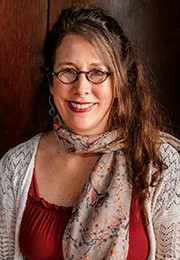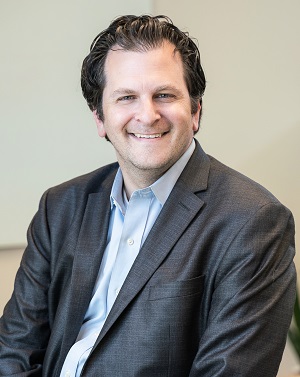NCDD Member Michael Freedman of Practical Academics shared the following blog post with us. In the post, Michael shares best practices for your online meetings – a timely topic for this moment! We encourage you to check out the article below, or over at the Practical Academics site here.

Online Meeting Best Practices
The advantages of online meetings are to save travel time, convenience, and flexibility while retaining or augmenting the benefits of group interactivity. For interactivity, we need engagement; for engagement, we need encouragement and trust. A one-way webinar is not a lot better than a video or a one-to-many lecture. Here are some points to consider in developing and running an interactive online meeting.
Development
Leverage time together for interactivity and sophisticated communications. Ask your participants to prepare in advance. Be clear on what this means: what they should come equipped with, and what should they be prepared to do.
Minimize large group time, maximize small group time. Large group time is for opening comments and announcements, setting the tone and agenda, for sharing results of small group efforts, wrap-up, and follow-up. Replace lectures and one-to-many instruction and guidance with pre-work sent in advance.
Group management. Small group models suggest optimum group sizes are 5-9. If this is a short ad hoc session, try less, perhaps 3-5. Use break-out sessions or hold multiple meetings if that’s what it takes.
Present structured activities and conversations with targeted outcomes; and be flexible if those outcomes evolve as this is the point of having people work things over: to develop the thinking.
Provide timeframes for working sessions with the Goldilocks model: not too short and not too long. Provide enough time for all to participate, along with a deadline to drive action. Most of the small group working sessions will have specific tasks that can be addressed in five – twenty minutes. If the working session agenda is long, use multiple working sessions.
Have an end game. What are you seeking to accomplish, and what will you do with the results?
If you have unstructured conversations, then make that distinction and ask folks to come with some thoughts on the topic to be discussed.
Have two leaders: One focuses on content delivery (short and succinct) and the other on the chat and looking at participants to get an idea of their engagement. This person then “presents” next. One can play the role of synthesizing with help from the group.
Consider a group participation agreement, formal or informal, depending on the group.
Include an opening round-robin so that everyone has a chance to say something – this will “break the ice,’ and set the tone for full participation. Make sure opening is on topic and relevant, not a timewaster.
Plan carefully to avoid time-zone and cultural snafus.
Use easy-to-use technology and make sure you know how to use it. Offer to train participants in advance.
Operations
Be consistent with your start time protocol and start on time. Consider an “unofficial” start time where folks can get set up and say hello. But start on time.
As the leader, show up early and kick off the conversations. Get people comfortable and participating. Try the “one-word” exercise: share a word that reflects how you are and what’s going on.
Keep a roster of participants and take notes on crucial contributions, factoids, and follow-ups.
Put on a show – prepare a solid opening, make it positive and constructive, if not joyful. Make time for people to add their ideas and modify the agenda.
Don’t overuse technology. Tools should serve their purpose without getting in the way. A show of hands might be better than an online poll.
Seek buy-in where possible. Buy-in engenders commitment and commitment fosters participation.
Allow some personal clearing and ideation; these are trust-building and tone-setting activities.
The downside of virtual conferencing is the limited ability to read non-verbal cues. Encourage all to use video so that expressions are readable, and to counteract the narrow “bandwidth,” slightly exaggerate your expressions and tone.
Wrap up
Follow-up. Distribute the results of the meeting with any action items and clear responsibilities as soon as possible following the end of the session.
Keep the momentum going.
Thanks to the members of the Right Company for their contributions.
 EnCiv automates proven human-interaction methods to scale productive democratic discourse. The Undebate is being made available to voters across the country this election season by EnCiv partner Ballotpedia under the label “Candidate Conversations.” In this Tech Tuesday event, EnCiv shared with us an example of how Undebate was used for the San Francisco District Attorney race, which can be viewed at this link.
EnCiv automates proven human-interaction methods to scale productive democratic discourse. The Undebate is being made available to voters across the country this election season by EnCiv partner Ballotpedia under the label “Candidate Conversations.” In this Tech Tuesday event, EnCiv shared with us an example of how Undebate was used for the San Francisco District Attorney race, which can be viewed at this link.


 Wednesday, May 6th
Wednesday, May 6th Wendy Willis, Executive Director of the Deliberative Democracy Consortium
Wendy Willis, Executive Director of the Deliberative Democracy Consortium Larry Schooler, Director of Consensus Building and Community Engagement at CD&P
Larry Schooler, Director of Consensus Building and Community Engagement at CD&P

 This pandemic can drive us apart or it can drive us together. Americans often rise to common challenges like this with kindness, love, mutual support, and shared responsibility to endure together. We need community now more than ever. Although our nation’s social fabric is badly frayed by distance and division, together we can weave a strong social fabric and emerge healthy and united.
This pandemic can drive us apart or it can drive us together. Americans often rise to common challenges like this with kindness, love, mutual support, and shared responsibility to endure together. We need community now more than ever. Although our nation’s social fabric is badly frayed by distance and division, together we can weave a strong social fabric and emerge healthy and united.